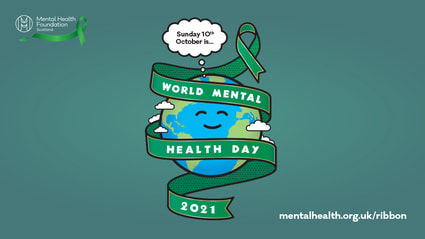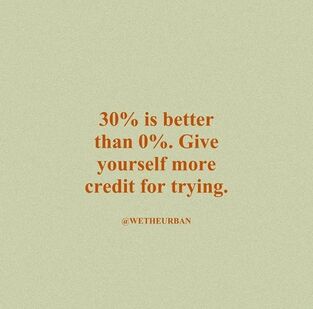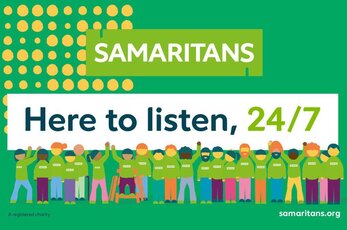Mental Health Awareness Day 2021
A life after lockdown
Meg O'Neil October 2021

October 10th 2021 marked Mental Health Awareness Day – a date that every year encourages for conversations to arise between friends and family around the topic of mental health, ultimately allowing for the stigma to be reduced around the issue. This day is so important to observe, especially as we move back towards a world where we are not constrained by lockdowns and government restrictions. Life may be returning to normal, but we must not neglect the parts of ourselves which have been damaged because of the pandemic.
In a survey completed by Mind UK, more than half of adults and over two thirds of young people said that their mental health had deteriorated over the course of the pandemic. Statistics like these truly provide an insight for the impact that the multiple lockdowns had on our mental health, meaning that now, more than ever, the importance of talking about how we feel is essential for our wellbeing.

The age of social media has assisted drastically in starting the conversation about mental health, with the rise of influencers being increasingly open about their own struggles and sharing stories of how they worked through their hardships. Platforms such as Instagram and TikTok are gradually destigmatising mental health, with creators dedicating their accounts to providing information, resources, and materials that their followers can freely access and benefit from. This is greatly advantageous – especially for young people – as they are exposed to this open communication from a young age that hopefully encourages them to speak willingly to friends and family about their own emotions and feelings.
Whilst it is important to notice the positive impact which the media has had on starting the conversation, changes are still there to be made. Social media is greatly responsible for the unattainable beauty standards which are presented to us, as well as allowing individuals to show themselves living the so called ‘perfect life’. Daily exposure to this sort of content is sure to be detrimental to our mental health – this is why it is so important to monitor your social media usage. Use these platforms mindfully and in small amounts, try not to compare yourself to the accounts you see online, and remember that social media is a highlight reel – people will purposely show the best parts of their lives.
Whilst it is important to notice the positive impact which the media has had on starting the conversation, changes are still there to be made. Social media is greatly responsible for the unattainable beauty standards which are presented to us, as well as allowing individuals to show themselves living the so called ‘perfect life’. Daily exposure to this sort of content is sure to be detrimental to our mental health – this is why it is so important to monitor your social media usage. Use these platforms mindfully and in small amounts, try not to compare yourself to the accounts you see online, and remember that social media is a highlight reel – people will purposely show the best parts of their lives.

It is so important to prioritise looking after your mental health, possibly more so than any other aspect of your life. Aside from the typical suggestions of “cooking a healthy meal” or “getting fresh air”, there are many beneficial things you can do in order to keep your mind healthy. For example;
- Engaging in a hobby that you’re good at – seeing yourself succeed at something you enjoy can sometimes be enough to restore some aspects of self-confidence which had been lost and can ultimately create feelings of fulfilment and accomplishment.
- Surrounding yourself with people who make you feel good about yourself – the people who you choose to keep around you will have a major impact on the way you end up seeing yourself. Therefore, keeping positive people around will likely bring out the best in you and make you feel more motivated and happier overall.
- Keeping active – exercise is so beneficial when it comes to prioritising mental wellbeing. Just 30 minutes of moderate exercise five times a week can be enough to reduce symptoms of anxiety and depression, help you sleep better and overall feel less stressed. This doesn’t even have to be intense; finding exercise that you enjoy will mean you are more likely to stay committed to it. Examples include yoga, dance, swimming, running, or cycling!

Whilst there are several things that you can do to keep your mind healthy, it is likewise important to emphasise the importance of asking for help when things become too much to manage alone. There is no shame in needing extra support sometimes – speaking to a close friend, family member or teacher is truly one of the bravest things you can do and is such a massive step in the right direction. People care about you, and they don’t want to see you in pain or overwhelmed by negative emotion. Admitting that you’re struggling to handle everything isn’t a sign of weakness, it takes so much courage to ask for help and doing so will allow for things to start to improve for you.
Likewise, it is so important to check up on your friends and see how they’re coping. Mental health struggles are often invisible and can simply be masked by a smile; reminding your friends that you’re there for them can sometimes be enough reassurance to know they’re not alone and could possibly allow for them to open up. It takes a lot of courage to speak freely about a mental health struggle, so when listening to a friend, show compassion and empathy, making sure not to interrupt or pressure them to say certain things. Sometimes you may not know how to respond, or there may not be any advice to give – but feeling seen and heard can be enough for some people...the knowledge that they’re not alone.
Likewise, it is so important to check up on your friends and see how they’re coping. Mental health struggles are often invisible and can simply be masked by a smile; reminding your friends that you’re there for them can sometimes be enough reassurance to know they’re not alone and could possibly allow for them to open up. It takes a lot of courage to speak freely about a mental health struggle, so when listening to a friend, show compassion and empathy, making sure not to interrupt or pressure them to say certain things. Sometimes you may not know how to respond, or there may not be any advice to give – but feeling seen and heard can be enough for some people...the knowledge that they’re not alone.

Acknowledging mental awareness day is so important, but it is even more crucial that we don’t stop raising awareness and spreading a positive message after this date. The points that are made every October 10th are applicable all year round – this does not stop here. Keep the conversation going, talk to people you trust and help to remove the stigma surrounding mental health going forwards.
For more advice on looking after mental wellbeing, visit these sites:
For more advice on looking after mental wellbeing, visit these sites:
Other Sites |
|